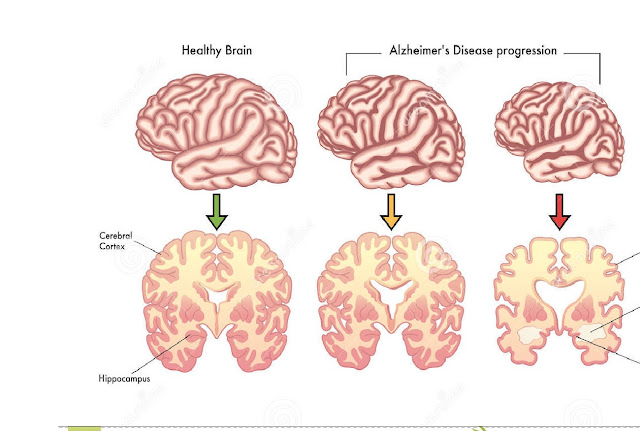Alzheimer, se lo anticipi ti puoi salvare. / Alzheimer, if you advance it you can save it.
Alzheimer, se lo anticipi ti puoi salvare. / Alzheimer, if you advance it you can save it.
Segnalato dal Dott. Giuseppe Cotellessa / Reported by Dr. Giuseppe Cotellessa
Prevenire. Anticipare. Così si può combattere e magari vincere una delle malattie più subdola del mondo. La ricerca contro l'Alzheimer finora ha offerto tante conoscenze ma nessuna cura. I farmaci non guariscono la malattia, a volte rallentano qualche sintomo.
Come spiega La Repubblica, una proteina, l' amiloide, è ritenuta la responsabile principale della malattia. È presente in tutti i cervelli ma in condizioni di normalità viene tagliata da "forbici enzimatiche" in frammenti che si dissolvono nel liquido cerebrospinale che bagna il cervello e il midollo spinale. In condizioni di patologia, invece, queste forbici tagliano nel punto sbagliato, formando frammenti che invece di dissolversi tendono ad aggregarsi, fino a formare placche, il cui deposito innesca reazioni che uccidono le cellule cerebrali.
La strategia più diffusa ed efficace è dunque per ora combattere l'amiloide. Sul solanezumab, un anticorpo che dovrebbe prevenire le placche, due grandi sperimentazioni non ha dato alcun miglioramento. Motivo? Eric Mc-Dade e Randall Bateman, della Washington University School of Medicine di St.Luis, spiegano: "Per noi la ragione cruciale di tutti i fallimenti è una: si interviene troppo poco e troppo tardi. Quando compare la demenza la malattia è ormai avanzata e molti neuroni sono già danneggiati irreparabilmente, perché si è scoperto che le placche di amiloide e gli altri fenomeni degenerativi del cervello iniziano 15-20 anni prima".
Negli ultimi tempi dunque l'approccio alla malattia è rivoluzionato: non intervenire sui malati avanzati ma su chi mostra i lievi disturbi che spesso preludono alla demenza, il cosiddetto declino cognitivo lieve. "Aspettare i sintomi per trattare l' Alzheimer è come aspettare che una persona abbia un infarto prima di curargli l' ipertensione: a quel punto, non è che abbassando la pressione si ripara il cuore".
Sono iniziate le sperimentazioni su persone senza o con minimi sintomi. C' è chi riprova il solanezumab, sperando che somministrato presto funzioni (lo sapremo nel 2020). Chi prova altri anticorpi come il gantenerumab, che non attacca l' amiloide disciolto ma le placche. E chi invece testa farmaci che frenano all' origine la produzione dell' amiloide (gli inibitori della beta secretasi).
L'Europa è all'avanguardia. "La Commissione Europea e le aziende farmaceutiche finanziano un progetto da 100 milioni di euro, il più grande al mondo sull' Alzheimer: Epad», spiega Giovanni Frisoni, neurologo, Direttore dell’Unità di Epidemiologia e Neuroimmagine Alzheimer, IRCCS Fatebenefratelli, Brescia. Frisoni coordina i rami italiano e svizzero. La ricerca sta arruolando volontari, occorreranno 5-7 anni per i risultati. "Non basta che le terapie riducano l' amiloide: devono prevenire la demenza", precisa Frisoni.
Un'altra importante sperimentazione, racconta sempre Repubblica, è quella letta su Nature di McDade e Bateman. I partecipanti hanno una rara mutazione che, alterando la sintesi dell' amiloide, rende certo il rischio di Alzheimer. "Anche noi diamo i farmaci quando l' amiloide si sta depositando", dicono i due studiosi, "ma in questi pazienti, dal percorso di malattia prevedibile, potremmo fare di più: intervenire ancora prima, per prevenire del tutto la patologia cerebrale". Al centro c'è sempre l'amiloide. E nasce un sospetto: visti i tanti fallimenti dei farmaci, c' è chi ipotizza che non sia una causa ma un mero effetto secondario della malattia. Prevenirne del tutto l' accumulo e vedere che succede placherebbe questi dubbi.
ENGLISH
To prevent. To anticipate. So one can fight and maybe win one of the most subdued diseases in the world. Alzheimer's research so far has offered so much knowledge but no cure. Drugs do not cure the disease, sometimes slow down some symptoms.
As La Repubblica explains, a protein, amyloid, is considered to be the major cause of the disease. It is present in all brains but in normal condition, it is cut from "enzymatic scissors" into fragments that dissolve in the cerebrospinal fluid that bathes the brain and the spinal cord. In conditions of disease, however, these scissors cut to the wrong point, forming fragments that instead of dissolving tend to aggregate, to form plates, whose deposit triggers reactions that kill the brain cells.
The most widespread and effective strategy is, therefore, to fight the amyloid for now. On solanezumab, an antibody that should prevent plaques, two major experiments did not give any improvement. Reason? Eric McDade and Randall Bateman of the Washington University School of Medicine at St.Luis explain: "For us, the crucial reason for all failures is one: it is too little and too late to intervene. When dementia appears, the disease is by now advanced and many neurons are already irreparably damaged because it has been found that amyloid plaques and other degenerative brain phenomena begin 15-20 years earlier. "
In recent times, therefore, the approach to disease is revolutionary: do not intervene on advanced patients but on those who exhibit the slight disorders that often lead to dementia, the so-called mild cognitive decline. "Waiting for the symptoms to treat Alzheimer's is like waiting for a person to have a heart attack before healing hypertension - at that point, it's just that lowering the pressure will repair the heart."
Experiments on people without or with minimal symptoms have begun. There are those who rehearsed solanezumab, hoping that he soon administered functions (we will know in 2020). Who tests other antibodies such as gantenerumab, which does not attack the dissolved amyloid but the plaques. And those who instead head drugs that restrain the production of amyloid (beta secretase inhibitors).
Europe is at the cutting edge. "The European Commission and pharmaceutical companies finance a $ 100 million project, the largest in the world on Alzheimer's: Epad," explains Giovanni Frisoni, Neurologist, Director of the Epidemiology Unit and Alzheimer's Neurosimple, IRCCS Fatebenefratelli, Brescia. Frisons coordinates the Italian and Swiss branches, research is volunteering, it will take 5-7 years for the results. "It is not enough that the therapies reduce the amyloid: they must prevent dementia," says Frisoni.
Another important experimentation, says Republic, is that read on Nature by McDade and Bateman. Participants have a rare mutation that, by altering the synthesis of amyloid, makes sure the risk of Alzheimer's. "We also give the drugs when the amyloid is depositing," said the two scholars, "but in these patients, from the foreseeable path of disease, we could do more: to intervene before, to completely prevent cerebral pathology." At the center, there is always amyloid. And there is a suspicion: given the many drug failures, there are those who assume that it is not a cause but a mere secondary effect of the disease. Preventing all the accumulation and seeing what happens will placate these doubts.
Da:
http://www.liberoquotidiano.it/news/scienze---tech/13240728/alzheimer--se-lo-anticipi-ti-puoi-salvare--scienza--come-evitare-la-malattia-piu-temuta-.html





Commenti
Posta un commento